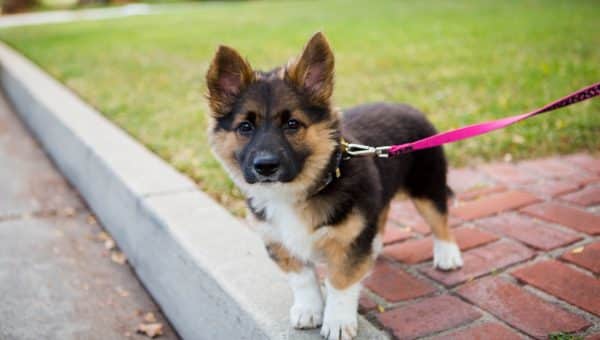- Not a substitute for professional veterinary help.
Just like humans, dogs have their own personalities, quirks, fears, triggers, and inner emotional worlds. It’s up to us, their caregivers, to help them feel safe in our human world, teach them skills that build confidence and resilience, and keep them safe and secure in their environment.
Choosing the right trainer is vital to your dog’s health and wellbeing. The right dog trainer will not simply teach your dog. They will also teach you how to teach your dog and offer support along the way. Dog training goes beyond basics like “sit, down, stay”—your trainer should provide a clear framework of what a fulfilled life looks like for your dog based on your lifestyle and routines.
There’s a lot of information about trainers out there, but how do you know if you’re choosing the right one for your dog?
The US has no regulations surrounding who can claim to be a dog trainer. You could put up a website, print out business cards, and call yourself one tomorrow if you wanted to. But don’t worry—you can easily sort out the professionals who dedicate themselves to learning and teaching animal behavior.
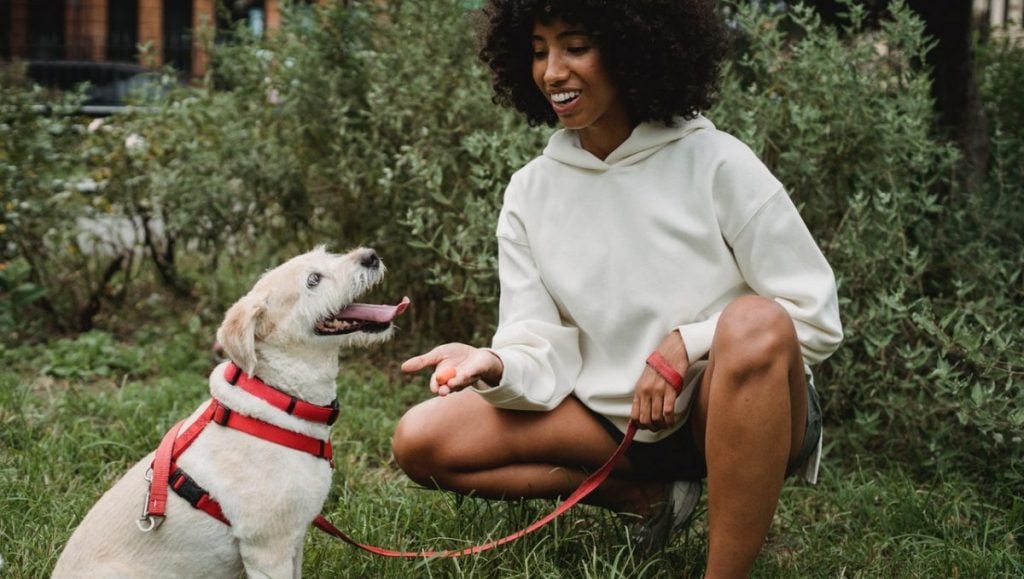
Samson Katt/Pexels
6 Questions to Ask a Dog Trainer
Do you hold any dog training certifications?
There are many different dog training certifications out there. Some of the best certify trainers independently. One example is the CPDT-KA or CPDT-KSA. These tests, by the Certification Council For Professional Dog Trainers, assess a trainer’s knowledge and skills and require a minimum 300 hours of animal behavior experience.
To keep their certification, these trainers must also complete continuing education to be re-certified every three years. Another independent certification program is the International Association of Animal Behavior Consultants, which has similar requirements.
Check out this article for a more in-depth rundown of dog training and behavior credentials.
What training equipment do you use and recommend?
Science has helped us understand that aversive equipment—electric shock collars (illegal in several countries for good reason), prong collars, choke chains, slip leads—cause our dogs undo stress in their learning experience, so the only acceptable answer here is “clicker, food, treat pouch, long-line, H-shaped harness” and various other tools that were not designed to cause pain and discomfort to the dog.
How do you stop unwanted behavior?
The ideal candidate will explain that you don’t just simply stop unwanted behavior. First, you have to find out why the behavior is happening—generally, unwanted behavior can be traced back to an unmet need.
Once your dog’s needs—shredding, chewing, playing, running, sniffing, foraging, etc.—are met, good trainers will work with you to put a management plan in place to stop the undesirable behavior and teach more desirable ones!
The best trainers take the whole picture into consideration and ask about routines, enrichment, and what you’d rather your dog do instead of the current behavior.
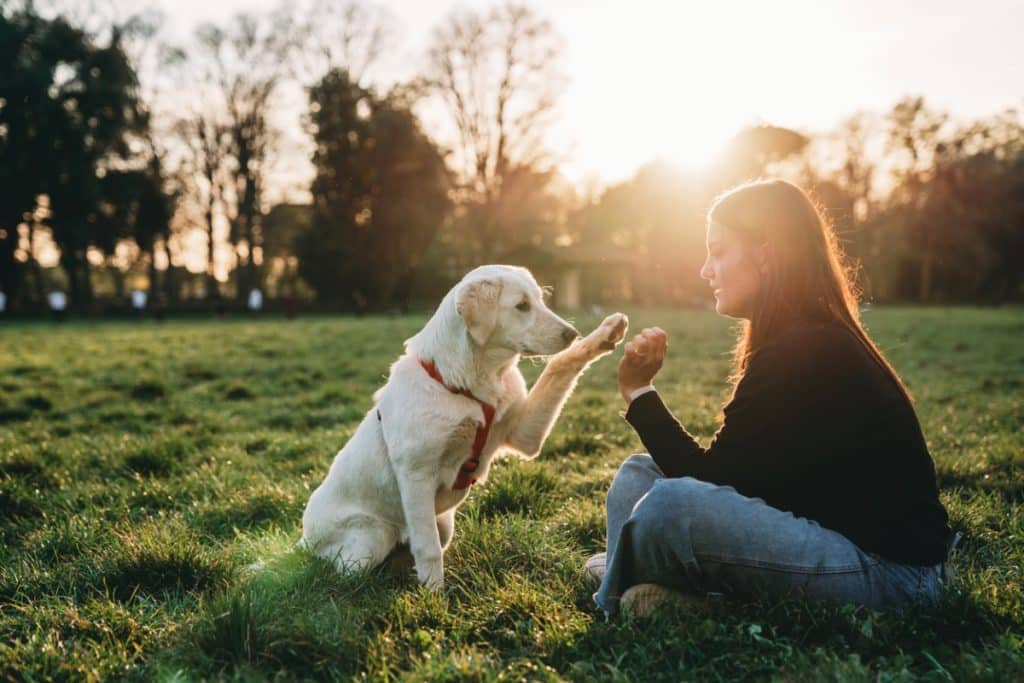
iStock/FilippoBacci
How do you work with anxious, stressed, or fearful dogs?
Reading dog body language is one of the most important factors in understanding dogs, so this aspect of training is extremely important.
A competent trainer will be well-versed in dog body language and vocalizations and can easily notice the signs of stress, fear, or anxiety. Based on these signals, the trainer will adjust their training plan so the dog can achieve a comfortable, happy learning state.
One way to vet potential trainers is to simply visit their website or social media pages and observe what the dogs look like. Do they have loose bodies, soft eyes, a relaxed mouth—do they look happy? Or do they look stiff, have shifty whale eyes, tails tucked, tightly closed mouths—do they look stressed or fearful?
What is your approach to continuing education?
Continuing education is key, as there are always new studies, conferences, and certificate programs coming out.
A great trainer will be endlessly curious about their field and strive to be up to date on the latest scientific research on topics like how dogs learn, dog welfare, the human-dog bond—then they’ll work to incorporate the newest information into their training plans.
Can I observe a class? Do you have any references?
Most trainers will let you observe a class for free (without your dog there) so you can get a good feel for their training style.
Look for references online on sites like Yelp, or ask if they have any testimonials from past clients. Testimonials and reviews provide real-world feedback and paint a picture of a trainer’s style. From there, you’ll have a better idea of whether or not a particular trainer is right for your dog.
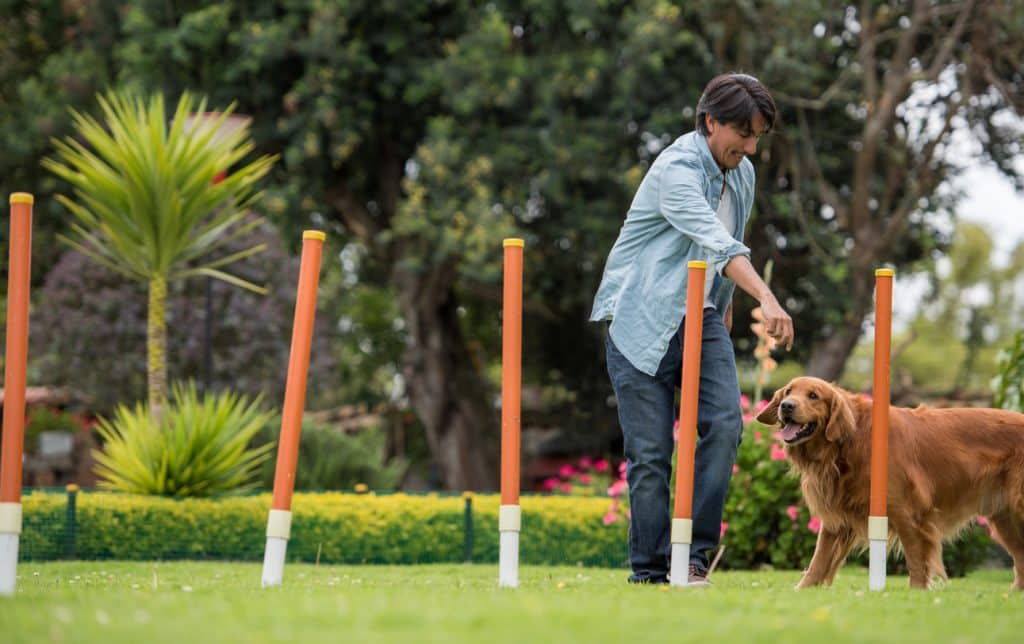
iStock/andresr
Dog Training Words to Watch for
In an unregulated industry, it can be difficult to sort fact from fiction when it comes to dog training claims.
Here are some green and red flags you may encounter to help you make an informed decision.
Green Flags
- The trainer uses or references words such as: force-free, fear-free, welfare, evidence-based, humane, routine, predictability, choice, cue, autonomy, agency, enrichment, positive reinforcement.
- Belongs to organizations that are committed to humane training and welfare (PPG, IAABC).
- Focuses less on obedience and more on games-based learning and skills to strengthen your relationship with your dog.
- Asks you questions about your dog’s learning and medical history and routines.
- Listens, validates, and empathizes with both you and your dog.
- You feel supported and understood and you aren’t afraid to ask questions.
- Has no problem pivoting a training plan based on you or your dog’s needs.
- Frequently says “it depends” or “I’m not sure, I’ll get back to you.” Competent trainers are aware that they do not know everything there is to know about dogs, but they’ll consult their peers and get back to you!
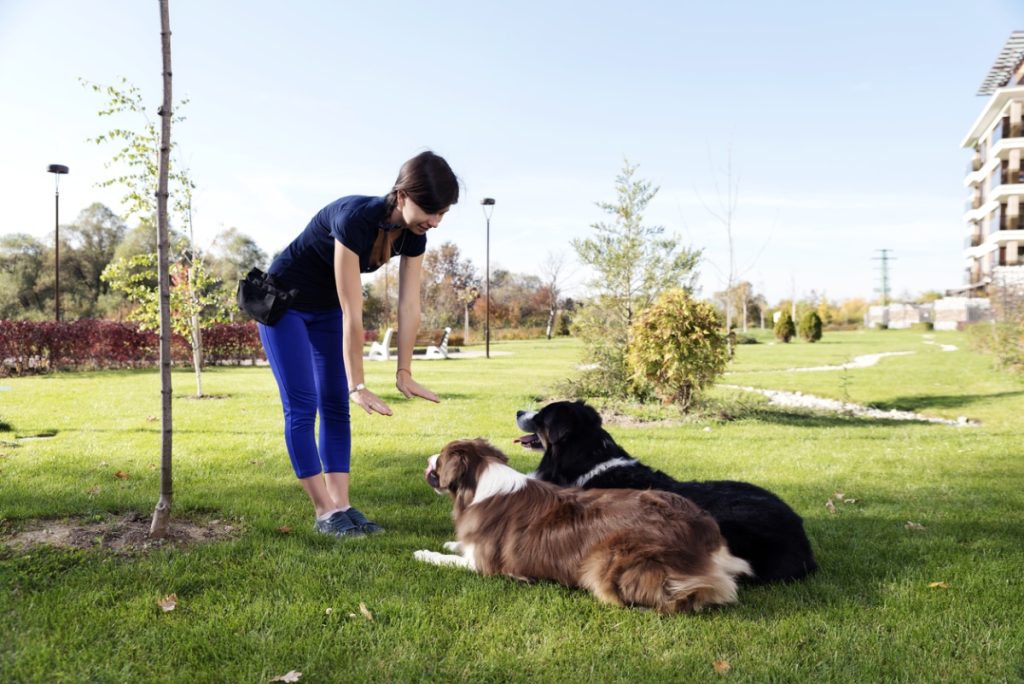
iStock/payamona
Red Flags
- The trainer uses or references words such as: alpha, pack, dominance, respect, leader, correction, balanced, accountability, structure, energy, calm state of mind, submission, punishment, weak, soft, stubborn, command.
- The trainer is not transparent about the methods they use—this should be clearly stated on their website or social media—or dodges the question when asked.
- Guarantees they’ll “fix” your dog in a specified amount of time—this is not how sentient beings, like humans and dogs, work.
- Blames and shames you for being “too soft” or “weak” for being kind to your dog, or blames you for your dog’s behavior in general.
- Focuses on obedience rather than choice and learning skills.
- Tells you that dogs should earn basic needs—like affection, comfortable sleeping spaces, food, water. You’ll often see this stated as “nothing in life is free”—which is totally bogus!
- Gets defensive if you ask questions—is quick to anger and operates from an inflated ego (this is very common!).
Bottom Line
We suggest researching 3–5 trainers in your area before choosing one. Try to attend a class as an observer to make sure you like their training style, and don’t hesitate to switch trainers if the first one you choose isn’t working for you and your pup. It is crucial for you to do your due diligence to find the right trainer for you and your dog.
A trainer whose skillset is rooted in a deep understanding of dogs, evidence-based methods, compassionate treatment, and continuing education is key.
Our dogs bring so much joy to our lives, it’s only fair to find them a trainer who treats them with kindness and teaches them with proven and humane methods!
Need More Dog Training Help?
Apps like GoodPup offer private virtual training from the comfort of your home. Check out GoodPup here.



